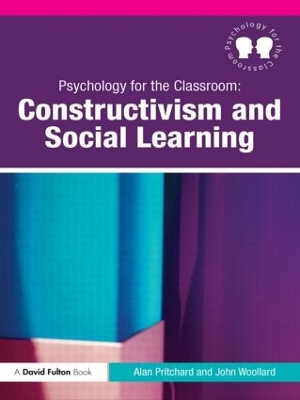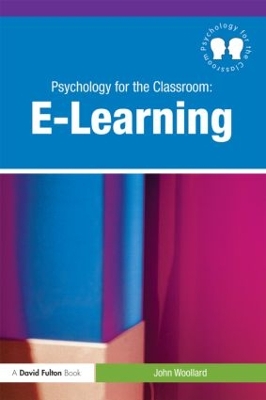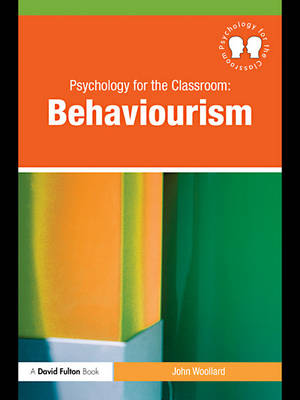Psychology for the Classroom
3 total works
Psychology for the Classroom: Constructivism and Social Learning provides a lively introduction to the much debated topics of talk and group collaboration in classrooms, and the development of interactive approaches to teaching. The authors provide a background to research in constructivist and social learning theory, offering a broad and practical analysis which focuses on contemporary issues and strategies, including the use of e-learning and multimedia. Throughout the book theory is linked with its practical implications for everyday teaching and learning and chapters incorporate:
- the history of constructivist and social learning theory and key thinkers
- pedagogical implications
- practical strategies for the classroom
- constructivist theory and e-learning.
Case studies and vignettes demonstrating best practice are used throughout the text, illustrating how monitored collaboration between learners can result in an effective learning environment where targets are met. Essential reading for practising teachers and students, this book is a valuable guide for those looking to provide effective teaching and learning within a constructivist framework.
Psychology for the Classroom: E-Learning is a lively and accessible introduction to the field of technology-supported teaching and learning and the educational psychology associated with those developments. Offering a substantial and useful analysis of e-learning, this practical book includes current research, offers a grounding in both theory and pedagogical application, and contains illustrative case studies designed to stimulate thinking about technology and education. The author places particular focus on the developing theory and practice of cybergogy as well as interpretations of conventional theories such as behaviourism, cognitivism and constructivism in the context of e-learning.
The book also explores how these developments provide new opportunities, contexts and environments for learning, including:
- virtual learning environments;
- social networking;
- personalisation;
- social justice;
- cyber-bullying and e-safety;
- blended learning;
- avatars and virtual worlds;
- cybergogy and new learning domains.
This unique text will appeal to all practising teachers and students alike and provides a valuable and practical guide to the theory and application of e-learning.
Psychology for the Classroom: Behaviourism describes and reflects upon the foundations of behaviourism and the proliferation of behaviourist techniques in common practice today. Through examples drawn from research, presentation of theory, description of pedagogy and illustration by vignette, the book informs teachers and allows them to modify their teaching in order to take account of what is now known about the way that carefully planned curriculum and appropriately reinforced behaviours lead to learning. There is a particular emphasis upon the role of the traditional principles of behaviourist learning theory and practice to contemporary issues and strategies in e-learning.
The author has taken a broad sweep of what has been written and promoted to educators in the area of behaviourist theory and practice, and the result is an informative and potentially very useful guide which should be read by all of us who are interested in, or responsible for, planning and encouraging effective teaching and learning.


